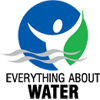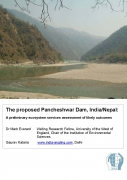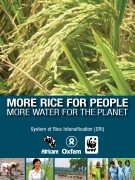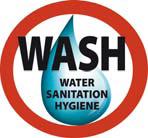India
Invitation for case study submission in water magazine
Posted on 06 Aug, 2010 11:26 AM
Our publication is coming up with the annual "Case Study Special Issue” in Sept. 2010. Its a collector’s issue, where we are covering leading industries across the globe.
Status of urban water supply, sanitation and solid waste management - CPHEEO data (2005)
Posted on 06 Aug, 2010 11:11 AMThis link on the Central Public Health and Environmental Engineering Organisation (CPHEEO) website, presents data related to the status of the urban water, sanitation and solid waste management in India. The data includes information on:
- Status of water supply (physical)
- Status of urban water supply (financial)
- Status of urban sewerage/sanitation system
- Status of low cost sanitation
- Status of solid waste management
Data is included from different states in India namely Assam, Arunachal Pradesh, Karnataka, Gujarat, Maharashtra, Mizoram, Pondicherry, Sikkim and Tamilnadu respectively.
A discussion on water
Posted on 03 Aug, 2010 03:15 PMWater is the base of life as we all know but a very interesting fact comes in my mind that what should be the full form of water. If one's define it there comes a better sentence. Let's we know it's full form.
W-when
A-atmosphere
T-threatens
E-earn
R-revenue
Deaths due to water pollution
Posted on 02 Aug, 2010 02:38 PMDeaths due to water pollution occur mainly as a consequence of drinking of contaminated water. The common diseases caused by consumption of contaminated water are Cholera, Viral Hepatitis, Enteric Fever (Typhoid) and Acute Diarrhoeal Diseases (ADD).
The number of deaths reported State-wise on account of Cholera, Viral Hepatitis, Enteric Fever (Typhoid) and Acute Diarrhoeal Diseases (ADD) for the years 2007, 2008 and 2009 are given in Annexure – I-III.
India WASH forum e-newsletter - Update 13 July 2010
Posted on 02 Aug, 2010 11:56 AMWe see this newsletter as a platform for independent credible voice in the water and sanitation sector. Our emphasis is on bringing together critical news and information with analysis. In this issue we share news and analysis on topical issues and developments.
The Department of Drinking Water and Sanitation(DDWS) has simultaneously invited inputs to Discussion Papers on Drinking Water and Sanitation, circulated on Solution Exchange. Inputs given by India WASH Forum, on this, is enclosed in this Update. We have pointed out the missing elements of sanitation improvement strategy that include, criticality of providing water as an inseparable component to household sanitation, the tendency to see behavior change as a lifestyle issue and not linked to the hardware components, peoples livelihoods and living conditions. Suggestions for what needs to be done to strengthen the implementation mechanism of the flagship sanitation programme(TSC) and partnerships.
A preliminary ecosystem services assessment of likely outcomes of the proposed Pancheshwar dam in India/Nepal - An IES report (2010)
Posted on 02 Aug, 2010 02:24 AM This report by the IES presents the findings of a study that explores the likely impacts of the recent proposals in India to build a dam at Pancheshwar in the Himalayas on the river ecosystems and the surrounding areas and people involved. This dam will be the world's second tallest structure intended to harness hydroelectric power and water by controlling the flow of the Kali river and its tributaries.
This report by the IES presents the findings of a study that explores the likely impacts of the recent proposals in India to build a dam at Pancheshwar in the Himalayas on the river ecosystems and the surrounding areas and people involved. This dam will be the world's second tallest structure intended to harness hydroelectric power and water by controlling the flow of the Kali river and its tributaries.
The document argues that although there are many benefits of the dam in terms of energy and water, the wider ramifications of the dam and its consequences for the people staying around the area have not been thought about in the planning process. The planning process has not engaged local people in the decision-making process, there is paucity of published information and the environmental and social consequences have been considered belatedly in the planning process.
More rice for people - More water for the planet - A WWF-ICRISAT report about System of Rice Intensification
Posted on 02 Aug, 2010 02:08 AM This project report by WWF-ICRISAT begins by highlighting the importance of rice as a major source of calories for half the world’s population and also as the single largest source of employment and income for the rural population.
This project report by WWF-ICRISAT begins by highlighting the importance of rice as a major source of calories for half the world’s population and also as the single largest source of employment and income for the rural population.
It makes connections between rice production and its impact on the environment and argues for need to adopt techniques such as System of Rice Intensification (SRI) to improve produce and reduce the damage to the environment.
For example, current practices at genetic uniformity can make crops more vulnerable to pests and diseases. They are also wasteful of increasingly scarce and costly resources such as water and fossil fuels. Heavily fertilised, continuously flooded rice fields produce greenhouse gases that contribute to global warming, and misuse of inorganic fertilisers and agrochemicals results in soil and water pollution. Evidence indicates that there has been a gradual slowdown in the yield gains of rice in many countries.
National Rural Drinking Water Programme - Framework for implementation - MoRD (2010)
Posted on 02 Aug, 2010 01:46 AMThe Government of India launched the Accelerated Rural Water Supply Programme (ARWSP) in 1972-73 to ensure provision of adequate drinking water supply to the rural community through the Public Health Engineering System.
The second generation programme started with the launching of Technology Mission in 1986-87, renamed in 1991-92 as Rajiv Gandhi National Drinking Water Mission. Stress on water quality, appropriate technology intervention, human resource development support and other related activities were introduced in the rural water supply sector.
The third generation programme started in 1999-2000 when sector reform projects evolved to involve community in planning, implementation and management of drinking water related schemes, later scaled up as Swajaldhara in 2002.
The Rural Water Supply (RWS) sector has now entered the fourth phase with major emphasis on ensuring sustainability of water availability in terms of potability, adequacy, convenience, affordability and equity while also adopting decentralized approach involving PRIs and community organizations.
Myths about small water harvesting systems - EPW paper
Posted on 02 Aug, 2010 01:17 AMThis article is written in response to an earlier published article “Chasing a Mirage: Water Harvesting and Artificial Recharge in Naturally Water-Scarce Regions” in the Economic and Political Weekly and argues that the paper makes a number of assertions about small water harvesting systems, that are based on faulty assumptions and inadequate information.
Climate change in India: Forgotten threats, forgotten opportunities - EPW paper
Posted on 02 Aug, 2010 01:12 AMThe document begins by commenting on the position taken by India in the global climate change discourse. India has consistently argued from the point of view of developing countries against restrictions on emissions that have been imposed on all countries globally, by stating that developing countries have started the industralisation processes recently and thus have contributed very little to the carbon emissions.
Thus, countries like India should not sacrifice their present development and growth for reducing global emissions. Any legitimate climate mitigation initiative should be just, equitable and secure developing countries' growth patterns.
The document argues that although India 's stand seems justifiable in the global discourse, the climate change issue is still a very sensitive one for India and India has the greatest to lose if it does not take proactive steps to deal with the issue of climate change in the future.
